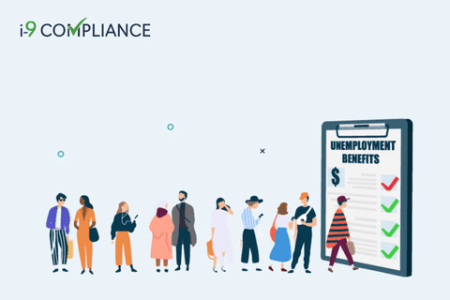Proposed USCIS Fee Increases Could Have an Adverse Effect on Employers

January 17, 2023
The U.S. Citizenship and Immigration Services (USCIS) recently issued a Notice of Proposed Rulemaking. This proposal would significantly increase fees for most immigration services, particularly employment-related applications. These adjustments would increase costs anywhere from a low 40% to a high of 200%.
The most significant increases would affect services relating to employment and immigration, such as the H-2A visa application. This application would increase by 236% from $460 to $780. These changes in fees could significantly impact employers that rely on foreign national talent.
According to the Federal Register notice filed by USCIS, the agency receives most of its funding from charges to immigrants and employees sponsoring foreign workers. The last time the agency increased its fees was in 2016, when it increased by an average of 21%. The agency stated that, at its current level of spending, it would become impossible to continue offering the same level of service without an increase in funding. Specifically, it estimates an almost $2 billion shortfall at current funding levels.
However, many employers fear this fee increase could adversely affect U.S. companies and nonprofits. For example, employers of high-skilled workers would pay 70% more for H-1B beneficiaries, 201% more for L-1 petitions, or 129% more for those on O-1 petitions. Furthermore, the USCIS proposes to increase the H-1B Electronic Registration Fee for each beneficiary from $10 to $215.
Employers have expressed concerns that these fees could have a severe effect, given the lack of improvement in service times or levels. Employers seeking to hire or transfer a foreign national worker, temporarily or permanently, may face a years-long wait.
Though these increases for employers prove significant, foreign investors would see the highest increases. For example, for EB-5 investors, the application fee would increase from $3,675 per investor to $11,160. In addition, for organizations seeking designation as an EB-5 Regional Center, the application fee would increase from $17,785 to $47,695.
These fee increases will take effect after a 60-day public comment period and the publishing of a final rule in the Federal Register. Until then, employers may continue to seek benefits from USCIS under the current fee structure.
As this shows, the regulatory landscape is constantly shifting. As a result, employers will likely struggle to stay informed. For many, this proves true when contending with the employment eligibility verification (Form I-9) process. One of the best ways to help ensure compliance is to utilize an electronic I-9 management system. This system can provide guidance every step of the way and help ensure uniform completion of each form.
When it comes to your employees, automation makes eligibility verification quick and simple. Ensure compliance today with I-9 Compliance.